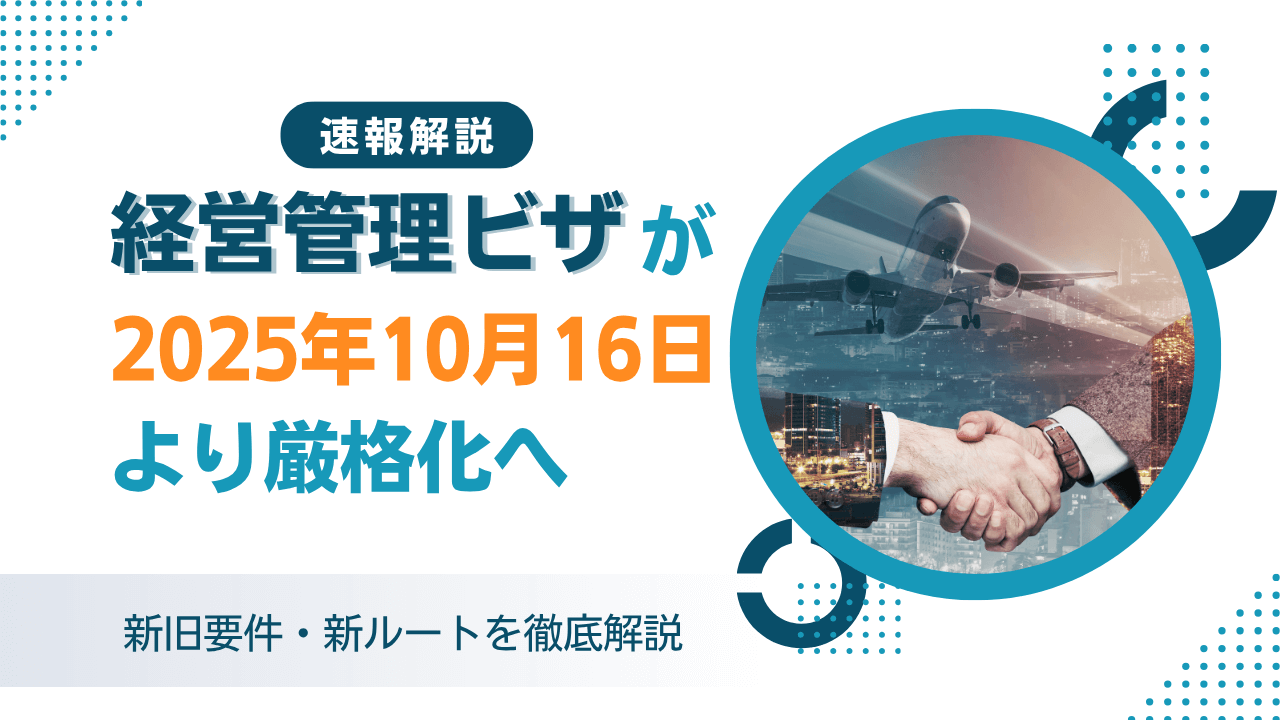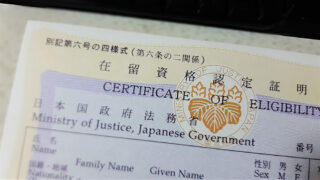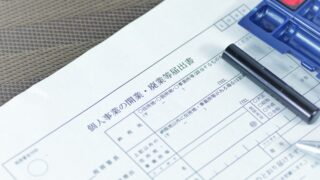On October 10, 2025, a Ministerial Ordinance amending the standards for the Status of Residence “Business Manager” was promulgated. This amendment will have a significant impact on foreign nationals seeking to start a business in Japan.
In addition to the long-discussed tightening of requirements, the amendment officially introduces a new requirement for Japanese language proficiency.
Based on the promulgated ordinance and the guidelines announced by the Immigration Services Agency of Japan (ISA), this document explains the following four key points in an accessible manner:
- [Confirmed] What Exactly Will Change Under the New Rules?
- [Last-Minute Applications] What happens if you apply before the enforcement date?
- [Critical] How will the renewal process work for those who already hold a Business Manager Visa?
- [New Standard Route] From the “Startup Visa (2 years)” to the “Business Manager” Visa
- You can also check the content of this article in a video.
- 1.[Confirmed] What Exactly Will Change Under the New Rules?
- 2.[Last-Minute Applications] What Happens if You Apply Before the Enforcement Date?
- 3. [Critical] Renewal for Existing Business Manager Visa Holders
- 4.[New Standard Route] From the “Startup Visa (2 years)” to the “Business Manager” Visa
- Conclusion
You can also check the content of this article in a video.
1.[Confirmed] What Exactly Will Change Under the New Rules?
The upcoming amendment raises the bar significantly for Business Manager Visa approval. The key differences between the current and new systems are summarized below:
Comparison of Amendments
| Item | Current Rules | New Rule (Effective from Oct. 16, 2025) |
| (1) Capital/Investment | JPY 5 million | JPY 30 million |
| (2) Management Experience / Education | None required | At least 3 years of management experience or a master’s degree (or higher) in a related field |
| (3) Employment Obligation | Not required (Alternative to capital requirement: hiring 2+ employees) | At least 1 full-time employee required |
| (4) Japanese Language Proficiency | Not required | Applicant or at least one full-time employee must possess sufficient Japanese language ability (e.g., CEFR B2 or JLPT N2) |
| (5) Expert Confirmation | Not required | Verification of the business plan by a qualified expert (e.g., SME management consultant) is mandatory |
The following subsections provide detailed explanations for each change.
- (1) Capital / Total Investment
The required capital threshold increases sixfold, from 5 million yen to 30 million yen.
- (2) Management Experience / Education
Applicants must provide objective proof of managerial capability. Periods of startup activity under the “Designated Activities (Startup Visa)” status count toward the 3-year experience requirement.
- (3) Employment Obligation
In addition to the capital requirement, at least one full-time employee must be hired. This employee must generally be a Japanese national, special permanent resident, or holder of a status such as “Permanent Resident.”
- (4) Japanese Language Proficiency
Either the applicant or a full-time employee must demonstrate a considerable level of Japanese proficiency, such as CEFR B2 or JLPT N2. A foreign full-time employee under another work visa may fulfill this requirement.
- (5) Expert Confirmation
Business plans must now be verified by professionals with recognized expertise in business management, such as SME management consultants, except for large-scale corporations.
[Important] The Requirement for Genuine Managerial Activity
In addition to the changes to the formal eligibility criteria, the core purpose of this amendment is to strictly assess the applicant’s substantive involvement in the business.
According to the guidelines released by the Immigration Services Agency (ISA), two key principles have been clearly established.
These provisions will have a particularly significant impact on business models that rely heavily on outsourcing, such as short-term rental or lodging management services.
- (1) Outsourcing and Actual Management Activity
If a business owner’s actual engagement in management cannot be reasonably recognized—such as when major operations are entirely outsourced—the individual will not be deemed to be conducting activities corresponding to the “Business Manager” status of residence.
This applies, for example, to cases where almost all daily operations, including cleaning, guest services, and maintenance, are delegated to contractors.
Unless the applicant personally plays an active role in core business functions such as marketing strategy, financial management, or operational improvement, they will not be regarded as a legitimate “business manager.”
Under the new framework, a business plan that merely delegates all responsibilities to external operators will find both initial approval and renewal extremely difficult.
- (2) Absence from Japan During the Period of Stay
If the visa holder leaves Japan for an extended period without a legitimate reason, such absence will be treated as evidence that there is no substantive business activity in Japan, and the extension of stay will not be approved.
This issue is common among businesses heavily dependent on outsourcing. When the owner entrusts all operations to agents or management firms and remains absent from Japan for long durations, they are considered a “ghost manager”—a status incompatible with the intent of the Business Manager Visa. Accordingly, unless the absence is due to valid business travel or other justified reasons, long-term stays outside Japan will result in the rejection of visa renewal applications.
2.[Last-Minute Applications] What Happens if You Apply Before the Enforcement Date?
The new rules will take effect on October 16, 2025.
However, applications submitted before that date will be reviewed under the current rules as a transitional measure.
- Application Deadline
Applications filed by October 15, 2025, will be examined under the pre-amendment standards.
- Applicants already holding a Certificate of Eligibility (COE)
Applicants already holding a Certificate of Eligibility (COE) issued under the current standards can enter Japan within three months of the issuance date without issue.
[Important] Note on Last-Minute Applications
The government aims to prevent abuse of the system, and thus last-minute applications may face stricter scrutiny,
particularly regarding the actual and sustainable operation of the business.
3. [Critical] Renewal for Existing Business Manager Visa Holders
For those currently holding a Business Manager Visa, a three-year transitional period is provided to avoid abrupt changes.
Three-Year Grace Period (Until October 16, 2028)
For renewal applications submitted within three years from the enforcement date — that is, by October 16, 2028 — an application will not be automatically rejected even if the new requirements are not yet fully satisfied.
Each case will be evaluated comprehensively, taking into account the applicant’s current business performance and the likelihood of meeting the new standards in the future.
However, during the examination process, the immigration authority may require the submission of documents evaluated by a certified business expert.
After the end of the grace period (From October 17, 2028)
After the expiration of the three-year grace period, renewal applications will, in principle, need to comply with the new standards.
[Exceptional Measures]
Even after the grace period has ended, if an applicant does not yet meet the new criteria, the renewal may still be approved provided that all of the following conditions are satisfied:
- The business is in good financial condition.
- All tax obligations, including corporate tax, have been properly fulfilled.
- There is a reasonable prospect of meeting the new standards by the next renewal.
These factors will be assessed holistically, and the final decision will be made based on an overall evaluation of the applicant’s situation.
4.[New Standard Route] From the “Startup Visa (2 years)” to the “Business Manager” Visa
The revised requirements for the new Business Manager visa—particularly the condition of having at least three years of management or administrative experience—set an exceptionally high bar.
However, a new and practical route to meet this requirement has emerged: the Status of Residence “Designated Activities”, commonly known as the “Startup Visa.”
Why Has the Startup Visa Been Underutilized Until Now?
The Startup Visa allows foreign nationals to stay in Japan for up to two years to prepare for business establishment.
Why Will the Startup Visa Become Important Going Forward?
The situation will change dramatically.
For foreign entrepreneurs who have no prior business foundation in Japan, it will be extremely difficult to satisfy the new Business Manager Visa criteria from the outset.
In this context, the Startup Visa will play the following crucial roles:
- Recognized as “Management Experience” .
The most significant change introduced by this amendment is that the period spent under the Startup Visa will now be counted as part of the required three years of management and administrative experience. - Allows a Step-by-Step Approach.
Even without 30 million yen in capital or prior management experience, applicants may first obtain a Startup Visa based on a realistic business plan. During this period, they can conduct preparatory activities—such as company incorporation, fundraising, and hiring—while progressively meeting the requirements for the Business Manager visa.
Expected Pathway for Future Entrepreneurs
- Step 1: Submit a business plan to a local government or authorized organization and obtain a
Startup Visa (up to two years).
- Step 2: Reside in Japan and carry out preparatory business activities such as incorporation, capital acquisition, and personnel recruitment (this period counts as management experience).
- Step 3: Once preparations are complete, apply to change status to the Business Manager visa.
In summary, the Startup Visa—previously underutilized—will henceforth become an essential mechanism for foreign entrepreneurs aiming to establish a business in Japan.
It serves both as a practical preparatory period and as an opportunity to accumulate verifiable management experience, thereby creating a more structured and credible pathway toward long-term business residency in Japan.
Conclusion
The recent amendment to the Business Manager Visa represents not merely a tightening of individual requirements, but a fundamental transformation of the visa framework itself.
Below is a summary of the key points to keep in mind:
- Significant Tightening of New Applications.Beginning October 16, 2025, new applicants will face substantially higher thresholds, including a capital requirement of JPY 30 million and at least three years of verified management experience. Furthermore, so-called “nominal managers” who delegate the entire operation of their business to external contractors will not be recognized as genuinely engaged in management activities and therefore will not be approved.
- Last-Minute Applications Are Permitted but Require Caution. Applications submitted by October 15, 2025, will still be examined under the existing criteria. However, authorities are expected to conduct more stringent reviews than usual regarding the authenticity and sustainability of the business. Merely formal compliance with the old standards will no longer be sufficient.
- Three-Year Grace Period for Renewals. Current visa holders will benefit from a transitional period until October 16, 2028. During this grace period, renewals will be evaluated flexibly; however, after that date, compliance with the new criteria will be required in principle.
- Startup Visa as the New Standard Pathway.
Going forward, the Startup Visa will serve as the principal route for foreign entrepreneurs: first, by allowing them to gain operational experience and build a business record in Japan, and then by transitioning to the Business Manager Visa once the requirements are satisfied. This two-step approach will likely become the new standard model for foreign business establishment in Japan.
This amendment sends a clear message that Japan intends to prioritize the quality of foreign business managers over quantity.
For those planning to establish a business in Japan, it is strongly recommended to evaluate one’s individual circumstances carefully and to consult with qualified professionals in order to determine the most appropriate pathway under the new system.



















































